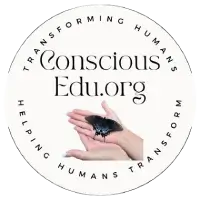Self-Awareness: The Power of Learning to Understand Yourself
Self-awareness is a key concept to understand. Let’s explore why.
We’ll also explore its connection to social emotional learning (SEL) and share some tips on how to boost this essential skill.
What Is Self-Awareness?
Self-awareness means understanding yourself by thinking about your thoughts and feelings. Although becoming completely objective about yourself may be difficult (a topic philosophers have discussed for a long time), there are different levels of self-awareness, like points on a scale.
The Vital Role of Self-Awareness
Self-awareness is at the heart of social emotional learning and plays a vital role in students’ overall happiness. When high school students work on self-awareness, they get to know their thoughts, feelings, and actions better. This knowledge helps them make smart choices, handle stress, and build positive relationships.
Self-awareness: Knowing yourself and how you affect others
Self-awareness is knowing how you feel and why, what you’re good at and not so good at, and how you affect others. It’s like having a mirror inside your head that shows you what you’re really like.
Self-aware people are able to:
- Name and understand their emotions
- Know their strengths and weaknesses
- Believe in themselves and their abilities
- Handle challenges confidently
- Understand how others see them
Self-awareness is important because it helps us make better decisions, build stronger relationships, and live happier lives.
Here are some simple questions you can ask yourself to check your self-awareness:
- What am I feeling right now?
- Why am I feeling this way?
- What are my strengths and weaknesses?
- What are my goals?
- How do I want others to see me?
Self-Awareness through Social Emotional Learning
Social emotional learning (SEL) is like a super tool that helps students get to know themselves better, especially at school. SEL is all about understanding our feelings and how to control them, which are like super skills for school and life. In SEL programs, students learn to recognize their feelings, understand why they feel that way, and find out how to handle them in a great way. This helps us become more self-aware and grow better friendships and ourselves.
Practical Tips to Enhance Self-Awareness
Want to learn more about yourself and grow as a person? Here’s a few tips
- Self-reflection: Slow down and think about your thoughts and feelings often. Writing in a journal can be a great way to do this.
- Seek Feedback: Feel free to ask the people around you for feedback. Honest insights from others can provide valuable perspectives.
- Mindfulness and Meditation: can help you get in touch with your inner world and understand your thoughts and feelings better.
- Emotional Intelligence Workshops: Take a class or workshop on emotional intelligence and self-awareness. These structured programs can offer you valuable tools and insights.
- Set Goals: Define your values and long-term goals. Align your actions with these values to foster a sense of purpose and self-awareness.
